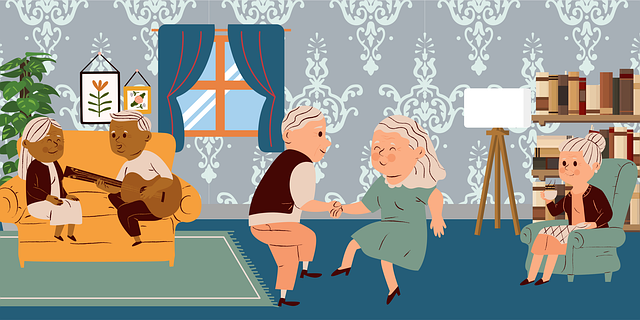In Oregon, the aging population's increased reliance on long-term care facilities has brought to light a pressing issue: nursing home abuse, particularly sexual misconduct. Despite these institutions' role as safe havens, cases of exploitation have risen, highlighting systemic failures in oversight and protection. Victims, often cognitively impaired or physically limited, demand higher ethical standards from caregivers. Oregon residents affected by nursing home sexual abuse can seek justice with the help of specialized nursing home abuse lawyers and attorneys who navigate complex laws to advocate for their rights. These professionals fill crucial gaps in protection, collaborate on awareness raising, and push for stronger legislation. Enhancing protections requires a multi-faceted approach including stricter regulations, staff training, increased penalties, public education, open dialogue, and reporting mechanisms.
In Oregon, the issue of sexual abuse within nursing homes has become a pressing concern, demanding immediate attention. This article aims to shed light on the growing problem and advocate for stronger protections. With an increasing number of cases, understanding the role of legal advocates is crucial in safeguarding vulnerable residents. We explore current laws and their limitations, highlighting the need for change. Additionally, we present strategies to enhance protections and hold perpetrators accountable, emphasizing the importance of a proactive approach by nursing home abuse lawyers Oregon and attorneys dedicated to preventing such heinous acts.
- Understanding Nursing Home Sexual Abuse: A Growing Concern in Oregon
- The Role of Legal Advocates in Protecting Vulnerable Residents
- Current Laws and Their Limitations: A Look at Oregon's Legislative Framework
- Strategies for Strengthening Protections and Holding Perpetrators Accountable
Understanding Nursing Home Sexual Abuse: A Growing Concern in Oregon
In Oregon, the issue of nursing home abuse, particularly sexual abuse, has garnered increasing attention and concern. As the state’s population ages, more individuals reside in long-term care facilities, making the prevention and detection of sexual misconduct within these settings ever more critical. Nursing homes, while designed to provide safe haven and support for vulnerable adults, have unfortunately become venues for exploitation and assault.
The prevalence of sexual abuse cases involving nursing home residents highlights a systemic failure in oversight and protection. Many victims are particularly vulnerable due to cognitive impairments or physical limitations, making it crucial for caregivers and staff to maintain the highest ethical standards. A nursing home abuse lawyer Oregon residents trust can help ensure that facilities uphold their legal obligations to protect residents from harm, including sexual assault. Nursing home abuse attorneys Oregon-based firms offer expertise in navigating complex laws and advocating for justice and accountability when these rights are violated.
The Role of Legal Advocates in Protecting Vulnerable Residents
In Oregon, legal advocates play a crucial role in safeguarding vulnerable residents, particularly those in nursing homes, from sexual abuse and assault. These advocates are trained professionals who specialize in navigating complex legal systems and fighting for justice on behalf of clients who may be unable to speak up for themselves due to age, disability, or other factors.
Nursing home abuse lawyers and attorneys in Oregon work tirelessly to ensure that residents’ rights are protected and perpetrators are held accountable. They collaborate with healthcare professionals, law enforcement, and community organizations to raise awareness about sexual abuse in long-term care facilities. By leveraging the Oregon nursing home abuse law and legal strategies, these advocates enable vulnerable individuals to access justice, compensation, and the support they need to heal from traumatic experiences.
Current Laws and Their Limitations: A Look at Oregon's Legislative Framework
In Oregon, the fight against nursing home abuse and sexual assault has been met with varying degrees of success, largely due to the current legal framework’s limitations. While the state has implemented laws aimed at protecting vulnerable residents, gaps remain that allow abusers to exploit these protections. For instance, Oregon law requires nursing homes to have policies in place to prevent and address abuse, but it doesn’t mandate specific training for staff on recognizing and reporting sexual assault, leaving a crucial aspect of prevention to individual facilities’ discretion.
Moreover, the legal process for prosecuting sexual abuse cases in nursing homes is often complex and lengthy. Victims face challenges such as memory lapses, fear, and a lack of adequate medical or physical evidence, which can hamper their ability to seek justice. Oregon’s nursing home abuse lawyers and attorneys play a vital role in advocating for stronger laws, providing legal representation to victims, and ensuring that perpetrators are held accountable for their actions. Law firms specializing in nursing home sexual assault cases in Oregon are dedicated to navigating these complexities and championing the rights of those who have suffered such atrocities.
Strategies for Strengthening Protections and Holding Perpetrators Accountable
Strengthening protections against sexual abuse in Oregon requires a multi-faceted approach. One crucial strategy is to enhance legal frameworks and ensure stringent enforcement. This includes advocating for stricter regulations and better monitoring systems within institutions, especially nursing homes, where vulnerable individuals reside. By increasing penalties for perpetrators and establishing clear protocols for reporting and investigation, potential abusers can be deterred, and survivors can receive justice. Oregon’s legal system should also prioritize victim advocacy, providing resources and support to ensure their voices are heard during legal proceedings.
Additionally, raising public awareness is essential. Educating both caregivers and residents about sexual abuse prevention and the available legal remedies can foster a culture of accountability. Training programs for staff in long-term care facilities can help identify potential risks and implement proactive measures. Encouraging open dialogue and promoting reporting mechanisms will enable survivors to come forward without fear of reprisal. Nursing home abuse lawyers, attorneys, and law firms in Oregon play a vital role in this process by ensuring that the rights of residents are protected and perpetrators face consequences for their actions.





